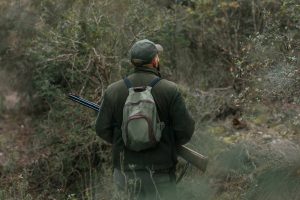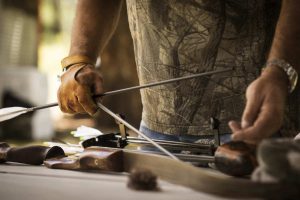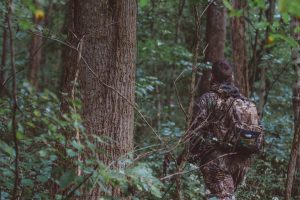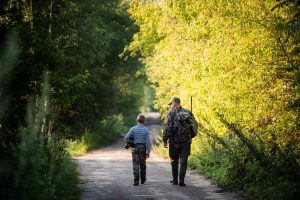Hunting has been part of human culture since the dawn of time. It has been used in many cultures as a source of food, recreation, and even as a way to maintain balance in nature. Today, hunting is widely regarded as an important tool for conservation, with a variety of economic, ecological, and social benefits for both hunters and the environment. In this article, we will discuss the benefits of hunting for conservation and why it is still an important activity today.
Economic Benefits of Hunting
Hunting is a popular recreational activity and can also be a lucrative source of revenue. Hunting generates direct economic benefits for the local economies in which it takes place. This can be seen in the form of taxes on hunting gear, increased tourism and spending by hunters, and the sale of hunting licenses. It also provides indirect economic benefits, such as the sale of meat, hides, and other products derived from hunting. In addition, hunters contribute to conservation efforts through the purchase of hunting licenses and other fees.
Hunting as a Recreational Activity
Hunting is a popular recreational activity that is enjoyed by people of all ages. It provides a unique way to connect with nature and can be a great way to spend quality time with family and friends. Hunting is also a great way to experience the outdoors, from the thrill of the hunt to the stunning scenery and wildlife. Hunting can be a challenge, but it can also be a great source of relaxation and solace, as well as an opportunity to practice outdoor skills.
An example of some skills a person can learn from hunting include:
- Wilderness Survival Skills: Hunting teaches you essential wilderness survival skills such as shelter building, fire building, navigation, and how to identify edible plants and mushrooms.
- Marksmanship: Hunting helps you hone your shooting accuracy, which is an important skill for any outdoorsman.
- Tracking: Hunting teaches you how to identify and interpret animal tracks, scat, and other signs of animal presence.
- Awareness: Hunting teaches you how to be aware of your surroundings and how to read the signs of the environment, such as the weather and the behavior of animals.
- Patience: Hunting teaches you the importance of patience and how to be still and quiet in nature.
Hunting as a Source of Revenue
Hunting is a major source of revenue for many rural communities. Hunting licenses and other fees are a major source of income for rural towns and states, and these funds are often reinvested in conservation efforts. Hunting can also attract tourism and other forms of economic activity, such as hotels, restaurants, and local stores. Additionally, the sale of meat and hides derived from hunting can provide revenue for rural communities and families.
Some ways communities have been improved by hunting include:
- Conservation efforts: Hunting has helped to fund conservation efforts such as land preservation and habitat restoration.
- Job creation: Hunting has created jobs in rural communities in the form of hunting guides, hunting outfitters, and other businesses related to hunting.
- Education: Hunting has provided educational opportunities for rural communities, such as hunter safety courses and wildlife management classes.
- Quality of life: Hunting has improved the quality of life in rural communities by providing recreational opportunities and economic benefits.
Ecological Benefits of Hunting
Hunting is an important tool for maintaining a healthy balance in nature. By controlling animal populations, hunters can help to preserve habitats and prevent overgrazing and other forms of environmental degradation. Hunting can also help to preserve genetic diversity, as it allows for the removal of individuals that are not well adapted to their environment. Finally, hunting can help to maintain a balance between predator and prey populations, which is essential for a healthy ecosystem.
Hunting as a Means of Population Control
Hunting is an important tool for controlling animal populations. By removing animals from a given area, hunters can prevent overgrazing and other forms of environmental degradation. This can help to preserve habitats and prevent the spread of disease, as well as maintain a balance between predator and prey populations. In addition, hunting can help to provide an incentive for farmers and ranchers to practice sustainable land management, as they are more likely to do so when they can benefit from hunting on their land.
Some of the animal species that have benefited from hunting as a means of population control include:
- White-tailed deer: Hunting has helped to manage the population of white-tailed deer in the United States, preventing overgrazing of vegetation and habitat destruction.
- Wild turkeys: Hunting has been used as a means of population control for wild turkeys, as well as reducing predation on other species.
- Elk: Hunting has been used to manage elk populations in the Rocky Mountains, allowing for the recovery of depleted habitats.
- Bighorn sheep: Hunting has been used to manage bighorn sheep populations, which can be overabundant and cause.
Hunting as a Way to Maintain Natural Habitats
In addition to controlling animal populations, hunting can also be used to maintain natural habitats. By removing animals from a given area, hunters can help to preserve habitats and prevent overgrazing and other forms of environmental degradation. Hunters can also help to protect habitats by purchasing hunting licenses and other fees, which provide funds for conservation efforts. Hunting can also help to prevent the spread of invasive species, as well as reduce the pressure on endangered species. Finally, hunting can help to reduce the risk of wildfires, as hunters can help to clear brush and create fire breaks.
Some of the ways hunters can help to conserve habitats include:
- Purchasing hunting licenses: Hunting licenses and other fees provide funds for conservation efforts.
- Planting trees: Hunters can help to reforest areas by planting trees, which can help to improve habitats and reduce the risk of wildfires.
- Restoring wetlands: Hunters can help to restore wetlands by planting native plants and removing invasive species.
- Participating in research: Hunters can participate in research studies to help identify habitat needs and better understand wildlife behavior.
Social Benefits of Hunting
Hunting is more than just an activity; it is a way of life for many cultures around the world. Hunting is deeply rooted in many cultures and is often seen as a tool for cultural heritage and traditions. It is also a way to foster understanding and appreciation for nature, as well as a way to promote stewardship of the environment. In this section, we will discuss the social benefits of hunting, including its ability to preserve cultural heritage and promote understanding of nature.
Hunting as a Tool for Cultural Heritage and Traditions
For many cultures, hunting is an important part of their cultural heritage and traditions. Hunting has been used in many cultures as a way of providing food, as well as a way to connect with the land and nature. Hunting is also seen as a way to pass on knowledge and skills from generation to generation. In addition, hunting can be a way to celebrate special occasions and honor the cultural traditions of a community.
Some of the cultural traditions related to hunting include:
- Rituals: Many cultures have rituals and ceremonies related to hunting, such as offering thanks to the spirits of the animals.
- Music: Many cultures have songs and stories related to hunting, which are used to share knowledge and celebrate the hunt.
- Art: Many cultures have art related to hunting, such as paintings, sculptures, and masks.
- Food: Many cultures have traditional dishes made from hunted game, such as wild boar, venison, and pheasant.
Hunting as a Way to Promote Human Understanding of Nature
Hunting can also be a way to promote understanding and appreciation for nature. By participating in the hunt, hunters can gain a better understanding of the environment and wildlife behavior. Hunting can also help to increase awareness of conservation efforts and the importance of preserving habitats and wildlife populations. In addition, hunting can be a way to foster stewardship of the environment, as hunters can help to protect habitats and keep wildlife populations healthy.
Some of the ways hunters can help to promote understanding of nature include:
- Participating in conservation efforts: Hunters can help to promote conservation efforts by participating in habitat restoration projects or other forms of conservation work.
- Sharing knowledge: Hunters can share their knowledge of the environment and wildlife behavior with others, which can help to promote understanding of nature.
- Educating others: Hunters can help to educate others about the importance of preserving habitats and wildlife populations.
- Supporting conservation organizations: Hunters can support conservation organizations by donating money or volunteering their time.
Hunters can Take Responsibility for Conservation
In this article, we discussed the various benefits of hunting for conservation. Hunting is a popular recreational activity, and can also be a lucrative source of revenue. It is also an important tool for controlling animal populations and preserving habitats. Hunting is also a way to preserve cultural heritage and promote understanding and appreciation for nature. Finally, hunting can be a way to foster stewardship of the environment and promote conservation efforts.
Hunters play an important role in conservation efforts and can help to promote understanding and appreciation for nature. Hunters can help to promote conservation efforts by participating in habitat restoration projects, donating to conservation organizations, and educating others about the importance of preserving habitats and wildlife populations. It is also important for hunters to practice responsible hunting and adhere to regulations and laws. By taking these steps, hunters can help to ensure that hunting remains an important tool for conservation for generations to come.
More Hunting Posts
Tylor Bennett
An editor at Outdoors ReportTylor Bennett is a senior editor for the blogzine and also reports on breaking news based in London. He has written about government, criminal justice, and the role of money in politics since 2015.
0 comments
Leave a reply
Your email address will not be published. Required fields are marked *A Beginner’s Guide to Backpacking












